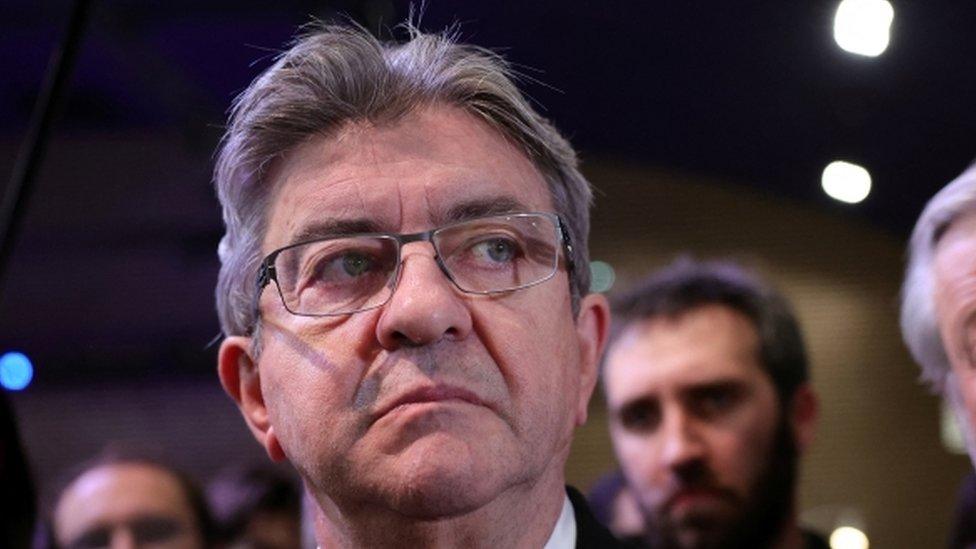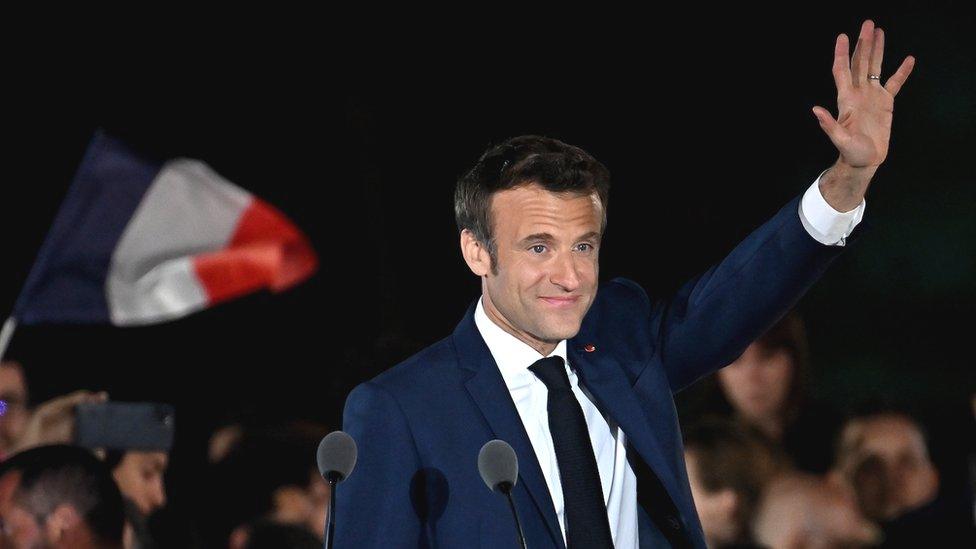France elections: Left forms coalition to fight Macron
- Published

Jean-Luc Mélenchon is the architect of the left-wing pact
Four left-wing parties in France have agreed in principle to form an alliance to challenge President Emmanuel Macron at June's parliamentary elections.
The Socialists, Greens, Communists and Jean-Luc Mélenchon's far-left France Unbowed party reached a draft agreement after all-night negotiations.
Mr Mélenchon, who just failed to make the presidential run-off in April, is looking for a majority of MPs.
All the parties involved hailed the agreement as historic.
The leader of the French Communist Party, Fabien Roussel, said no party on the left could win alone against Mr Macron.
The deal still needs to be approved by the Socialist Party's national committee at a meeting on Thursday evening.
A negotiator for the Socialists, Pierre Jouvet, told reporters that if the deal won final approval, it would be a significant moment in French politics:
"I believe that today we are a few hours away from an historic moment, an historic moment that has been awaited for years by the people of the Left who have been ardently asking us to find a way to come together," he added.
Despite failing in the presidential race, the parties hope to be able to block President Macron's legislative agenda by winning a majority of seats in the National Assembly.
The fragmented nature of the Left in modern France has been widely blamed for the failure of any of its candidates to make the second round of last month's presidential election.
The most successful, Mr Mélenchon, won 21.95% of the vote in the first round, but was edged out by the far-right Marine Le Pen. He was particularly popular among under-25 voters.
The Socialists, who last captured the presidency as recently as 2012, saw their share of the first-round vote collapse to an all-time low of 1.74%, with their candidate Anne Hidalgo failing to get enough support to have her election costs reimbursed by the state.


The once-dominant Socialist party, along with the Greens and Communists, has fallen in behind the far-left France Unbowed party of Jean-Luc Mélenchon, who emerged in the presidential race as by far the most popular leader on the French Left.
If the deal goes ahead, it'll mean that instead of running against each other in the parliamentary elections, Socialists, Greens, Communists and supporters of France Unbowed will share one candidate per constituency, thus greatly increasing their chances.
It's the dream of Mr Mélenchon to be able to impose on President Macron a parliamentary majority that would systematically block his reforms.
This is Mr Mélenchon's deal, because since the presidential race, he's unchallengeable as leader of the Left. But it won't be plain sailing.
The socialists' governing body has yet to sign off on the deal, and even if it does, the risk is that the text merely papers over fundamental differences between the parties on issues such as Europe and nuclear power that will inevitably burst out again in the future.

Related topics
- Published25 April 2022
